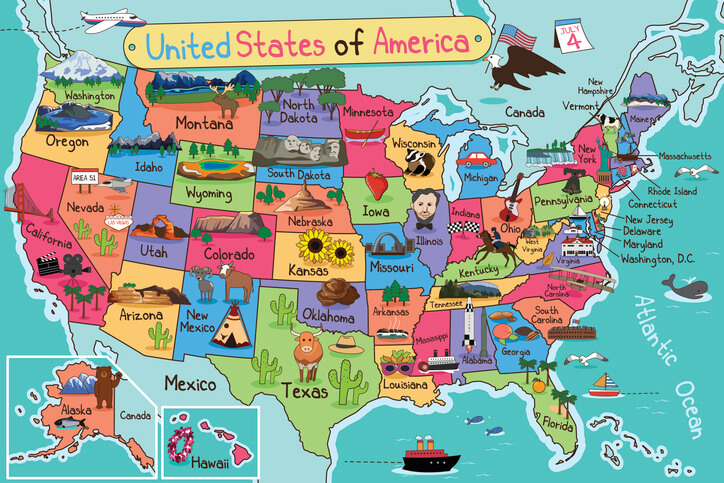Many states across the U.S. offer specific programs, incentives, and discounts that reward safe driving habits, continued education, and participation in local initiatives. Yet millions of drivers leave money on the table simply because they’re unaware of what’s available.
Let’s explore the state-by-state opportunities to save on car insurance and show you how being informed—and proactive—can pay off.
Why State Regulations Matter for Your Auto Insurance Premium
Auto insurance is regulated at the state level, not federally. That means everything from minimum coverage requirements to discount eligibility can vary widely. Understanding your state’s rules opens the door to:
- Defensive driving course discounts
- Usage-based insurance (UBI) programs
- Low-mileage and telematics discounts
- Good student or senior driver savings
- Clean driving record rewards
- State-sponsored insurance affordability programs
New York: Defensive Driving Course = Guaranteed Discount
In New York, completing a state-approved defensive driving course automatically qualifies drivers for a 10% discount on their liability and collision premiums for three years.
This benefit is enshrined under the Point & Insurance Reduction Program (PIRP). It also allows drivers to remove up to 4 points from their license, which helps mitigate the impact of traffic violations.
Pro tip: These courses can be taken online and are a quick, cost-effective way to lock in long-term savings.
California: Usage-Based Discounts and Low-Income Programs
California law prohibits insurers from using credit scores, gender, or occupation in calculating premiums, making the system more equitable.
However, insurers can offer usage-based insurance programs, where your rate is influenced by driving behavior (mileage, braking patterns, speed). Programs like Allstate Drivewise and Progressive Snapshot are popular here.
The California Low Cost Auto Insurance Program (CLCA) provides affordable liability coverage to income-eligible drivers.
Texas: Driver Safety and Young Driver Discounts
Texas supports multiple discount opportunities:
- Defensive driving courses can reduce points and qualify drivers for insurance discounts.
- Good student discounts for young drivers with B averages or higher.
- Safe driver discounts for those with clean records over multiple years.
The Texas Department of Insurance also encourages shopping, as Texas has wide premium variation between providers.
Georgia: Senior Drivers and Telematics Savings
Georgia drivers over 55 may qualify for mature driver discounts by completing state-approved defensive driving courses. Insurers also offer significant savings for telematics participation, which involves monitoring driving via mobile apps or plug-in devices.
Washington: Alternative Insurance and Pay-Per-Mile
Washington promotes UBI through pay-per-mile insurance programs, where low-mileage drivers can save big. Insurers like Metromile base premiums on how much you drive—perfect for remote workers or retired drivers.
Washington also restricts some risk-based pricing factors (like credit) and encourages transparency in rate-setting.
Arizona: Bundling and Safe Vehicle Incentives
Arizona insurers frequently offer discounts for:
- Bundling auto and home or renters insurance
- Vehicles with advanced safety features (lane assist, blind spot monitoring, etc.)
- Defensive driving course completion, particularly after a citation
The state emphasizes keeping high-risk drivers insured affordably through tiered plans.
Colorado: Eco-Friendly and Young Driver Perks
Colorado promotes eco-conscious driving with some insurers offering discounts for hybrid or electric vehicles. Young drivers benefit from good student and safe driver programs, often tied to mobile app tracking systems.
Why You Should Always Ask About State-Specific Discounts
Many discounts aren’t automatically applied—they require you to ask or opt in. For example, your insurer might not promote that a defensive driving course qualifies for savings unless you bring it up.
Here’s how to stay ahead:
- Contact your insurer annually to review all available discounts
- Search your state’s Department of Insurance website for active programs
- Consider enrolling in a state-approved defensive driving course to unlock guaranteed savings
- Ask about discounts for safe cars, bundled policies, or driving fewer miles
- Look for special programs for seniors, students, or low-income drivers
The Hidden Bonus: Safer Driving = Lower Risk Profile
Even beyond state-mandated programs, improving your driving habits has a long-term payoff. Drivers who complete defensive driving courses tend to:
- Receive fewer citations
- File fewer claims
- Qualify for more insurance discounts
- Extend the life of their vehicles
- Save on fuel and maintenance
In short, safer drivers cost less to insure—and smart insurers reward that behavior, especially when your state sets the stage.
Final Takeaway: Know Your State, Save Your Cash
Auto insurance is an expense we all have, but not enough people are aware of the tools available to reduce it. By understanding your state-specific programs and taking simple actions—like completing a defensive driving course or signing up for usage-based plans—you could reduce your premium by hundreds per year.
So before you renew that policy, ask yourself: What does my state offer, and am I taking advantage of it?
Because saving money shouldn’t be a secret—it should be a smart strategy.

 Live Chat
Live Chat







